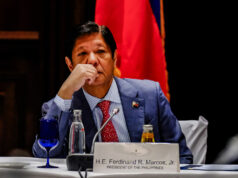
THE PHILIPPINES continues to lag in reaching its target vaccination rate due to public fear stoked by misleading information on immunization, public health advocates said on Tuesday.
“We need to educate parents on the safety of vaccines… and avoid vaccine misinformation,” Vicente Y. Belizario, Jr., former dean of the University of the Philippines Manila College of Public Health, said in a media forum.
Mr. Belizario said that one of the most misleading pieces of information on immunization is that vaccines are used for “experimenting [on] children.” Debunking this, he said that vaccines undergo phases of assessments and are endorsed by the World Health Organization (WHO).
“The WHO makes pronouncements based on evidence reviewed by experts who advise them,” he said.
“Delay in acceptance or refusal of vaccines despite availability of vaccine services becomes the end result of such negative information,” he said, citing the WHO.
He added that vaccine hesitancy in the Philippines is mostly rooted in the Dengvaxia controversy. The government suspended the distribution of the anti-dengue vaccine in 2017 after French pharmaceutical company Sanofi Pasteur said that Dengvaxia can cause severe dengue if it is given to those without prior exposure to dengue.
The country has a 95% target for immunization coverage, citing House Bill No. 4483 or the proposed Mandatory Immunization Program Act.
The Philippines is ranked 5th globally for the most number of zero-vaccine children or children who have not received a single vaccine, the United Nations Children’s Fund (UNICEF) reported in 2021.
“The Philippines as a whole is not doing nicely in terms of childhood mortality,” Mr. Belizario said, noting that an infant’s first 1,000 days are crucial in protecting the child from pneumonia. “There are more deaths that should be expected.”
With local government units (LGUs) at the forefront of distributing vaccines to the public, many struggle to have access to immunization.
“Access is challenging in many instances.” Mr. Belizario said. “In many settings in the PHL, health workers will need to cross rivers…[or are] coming down from the mountain or coming from remote areas.”
Fatima Ignacio-Jimenez, who heads the Immunization Committee of the Philippine Pediatric Society, said LGUs should prioritize its health programs as it “dominoes into the productivity of the country as a whole.”
“We have not actually penetrated the grassroots or the masses because the messages, even though they’re simple, they’re mixed,” she told the forum.
Data from the Philippine Statistics Authority (PSA) said that only 48% of Filipino infants have been vaccinated, with pneumonia causing approximately 31,000 deaths among children under five years old in 2022.
Mr. Belizario noted that childhood vaccination is still the best way to combat childhood pneumonia, as well as improved access to water, sanitation and hygiene.
Ms. Gimenez emphasized that protecting an infant from diseases like pneumonia starts in the mother’s womb.
“Your child’s [health] depends on what protection you give to yourself,” she said, citing how breastfeeding helps the mother pass on anti-bodies to give her child temporary protection.
“There is no vaccine that is 100% effective but if you have anti-bodies, when the natural disease comes to you, then at least you have a form of defense,” Ms. Gimenez said. — Beatriz Marie D. Cruz



